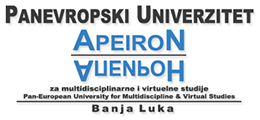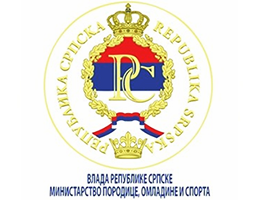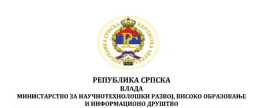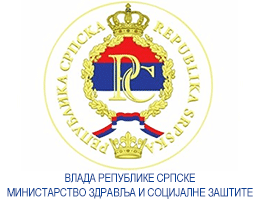DEVELOPMENT OF BASIC SKILLS TEST INSTRUMENT FOR MAEGERI BASED ON CGFU-PM 515
Volume 14, Issue V (2024)
Volume 14, Issue V (2024)
DEVELOPMENT OF BASIC SKILLS TEST INSTRUMENT FOR MAEGERI BASED ON CGFU-PM 515
Apstrakt:
Play activities are necessary in training children in karate to change the image that karate is a tough sport.
The concept of Coaching Game for Upgrading Performance Model 515 (CGFU PM-515) is very relevant for training children
because with this concept children think that they are playing but actually the child is practicing karate techniques.
The importance of conducting research to develop a CGFU-PM 515-based maegeri basic technique skill test instrument
consisting of skill, soft skill, and performance assessment elements because there has been no previous research related to
the preparation of these instruments. This research is development research, conducted with quantitative and qualitative
approaches. This research was conducted in three stages, the fi rst was by conducting a literature review, the second was
by conducting validity and reliability tests, and the third was validity data analysis using the V-Aiken formulation and reliability
testing with the intraclass correlation coeffi cient (ICC). Based on the results of the validity test and reliability test
of the maegeri basic technical skill test instrument has a high level of validity and has a good level of reliability, the results
of the validity test results using V-Aiken obtained the results of 0.99 and the reliability test using the intraclass correlation
coeffi cient test showed a score of 0.801. Thus, the CGFU-PM 515-based maegeri basic technical skill test instrument which
includes three aspects, namely soft skills, skills, and performance can be used.
Ključne riječi:
CGFU-PM 515, Test Instrument, Karate, Maegeri, Validity and Reliability.
Puni tekst:
Reference:
Gil-Arias, A., Diloy-Peña, S., Sevil-Serrano, J., García-González, L., & Abós, Á. (2021). A hybrid tgfu/se volleyball teaching unit for enhancing
motivation in physical education: A mixed-method approach. International Journal of Environmental Research and Public Health,
18(1), 110.
KABAKULAK, A., & PELİT, E. (2022). Turist Rehberlerinin Kişilik Özelliklerinin Liderlik Davranışlarına Etkisi. Turist Rehberliği Dergisi
(TURED), 5(1), 46-66.
Saud, A. (2019). Tinjauan Sistematis Tentang Teknik Delphi Dan Kaitannya Terhadap Isu Kefarmasian Terkini. Majalah Farmasi dan Farmakologi,
23(1), 38-47.
Sriwahyuniati, C. F. (2019). Senam Ritmik Dalam Paradigma Era Globalisasi. Jorpres (Jurnal Olahraga Prestasi), 15(2), 67-71.
Dao, C. T. (2021). Using movement games in physical education class to improve physical fi tness and stabilize vestibule for children aged 6 to
7 years. International Journal of Human Movement and Sports Sciences, 9(6), 1396-1402.
Danardono , Agus Kristiyanto , Sapta Kunta Purnama , Tomoliyus , Nevita Ariani (2022). Reactive Agility Instruments in Karate Kumite:
Aiken Validity. International Journal of Human Movement and Sports Sciences, 10(3), 446 - 452.
Chaabene, H., Hachana, Y., Franchini, E., Tabben, M., Mkaouer, B., Negra, Y., ... & Chamari, K. (2015). Criterion related validity of karate
specifi c aerobic test (KSAT). Asian journal of sports medicine, 6(3).
Arias-Estero, J. L., Jaquero, P., Martínez-López, A. N., & Morales-Belando, M. T. (2020). Eff ects of two TGfU lessons period on game performance,
knowledge and psychosocial variables in elementary physical education. International Journal of Environmental Research
and Public Health, 17(10), 3378.
Croasmun, J. T., & Ostrom, L. (2011). Using likert-type scales in the social sciences. Journal of adult education, 40(1), 19-22.
Hazman, M. A. H., Nordin, L., & Wahid, A. (2020). The elements of soft skill among students at private university. Journal of Critical Reviews,
7(8), 763-767.
Błaszczyszyn, M., Szczęsna, A., Pawlyta, M., Marszałek, M., & Karczmit, D. (2019). Kinematic analysis of mae-geri kicks in beginner and
advanced kyokushin karate athletes. International journal of environmental research and public health, 16(17), 3155.
Portney, L. G., & Watkins, M. P. (2009). Foundations of clinical research: applications to practice (Vol. 892, pp. 11-15). Upper Saddle River,
NJ: Pearson/Prentice Hall.
Zaini, M. Z., & Salimin, N. (2020). Coaching Games for Understanding (CGfU) Module for Invasion Games in Football. International Journal
of Academic Research in Business and Social Sciences, 10(4).
Siswantoyo, N. B. S., Fajar, C., Indera, O., Ikhawan, N. & Salimin, N. (2020). Innovation ‘sport coaching games’ of basic movement (Jump-Pivot-
Balance) training In ritmic gymnastic base on higher order thinking skill (HOTS) and CGFU-PM 515 concept. Lembaga penelitian
dan pengabdian kepada masyarkat. Universitas Negeri Yogyakarta. Available:https://drive.google.com/fi le/d/1CyvqFPQfAhjVI7k-
CZ2zUzrfeu_896JvN/view?usp=share_link.
Koropanovski, N., Berjan, B., Bozic, P., Pazin, N., Sanader, A., Jovanovic, S., & Jaric, S. (2011). Anthropometric and physical performance
profi les of elite karate kumite and kata competitors. Journal of human kinetics, 30(2011), 107-114.
Sando, O. J., Kleppe, R., & Sandseter, E. B. H. (2021). Risky play and children’s well-being, involvement and physical activity. Child Indicators
Research, 14(4), 1435-1451.
Arthur, R., Rouf, F. A., Rahmayanti, H., & Maulana, A. (2019, December). Plumbing work competence instrument in the fi eld of civil engineering.
In Journal of Physics: Conference Series (Vol. 1402, No. 2, p. 022019). IOP Publishing.
Ferrari, R. (2015). Writing narrative style literature reviews. Medical writing, 24(4), 230-235.
Harrison, R. L., Reilly, T. M., & Creswell, J. W. (2020). Methodological rigor in mixed methods: An application in management studies. Journal
of mixed methods research, 14(4), 473-495.
Nopembri, S., Rismayanthi, C., Putro, K. H., Kristiyanto, A., Margono, A., Karakauki, M., & Pratama, K. W. (2022). Improvement of HOTS
method in basketball game through TGFU learning. Physical Education Theory and Methodology, 22(1), 85-91.
Crossan, W., Bednar, M., & Quinn, R. (2021). Perceptions of coaching success: an exploratory analysis of Czech coaches views on success.
Physical Culture and Sport. Studies and Research, 91(1), 1-12.
Siswantoyo¹, W. S., Sudarko¹, R. A., Arga¹, M. W., & Susanto, Y. F. (2023). Circuit game development mawashigeri based on CGFU-PM 515
for children aged 10-12 years in karate sports. UDC: 613 UDC: 796, 5.
Awang, Z., Afthanorhan, A., & Mamat, M. (2016). The Likert scale analysis using parametric based Structural Equation Modeling (SEM).
Computational Methods in Social Sciences, 4(1), 13.






